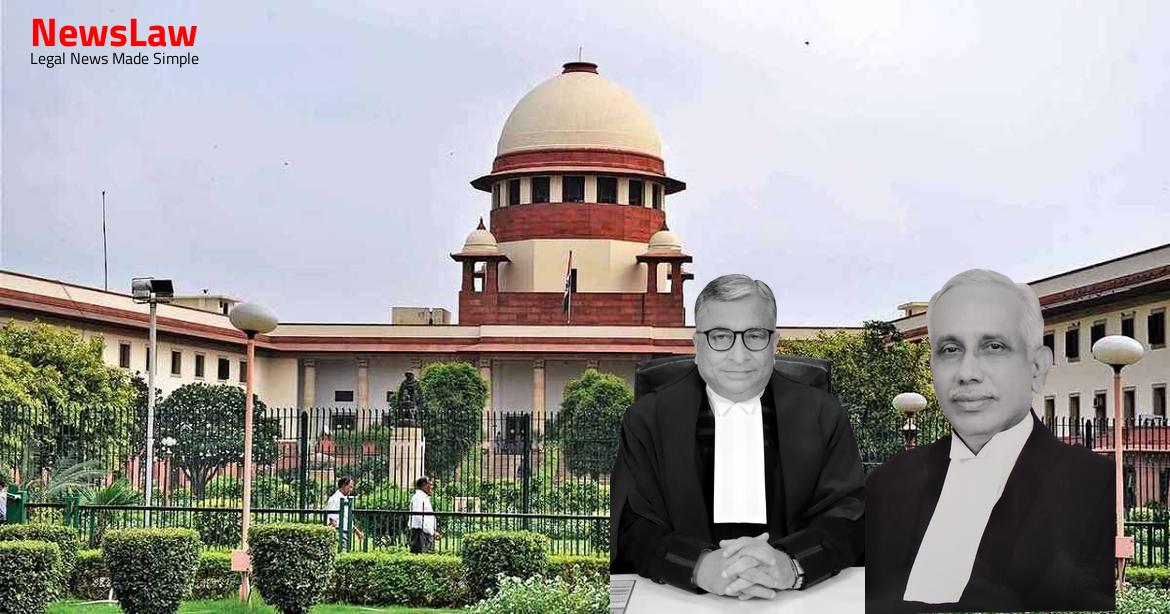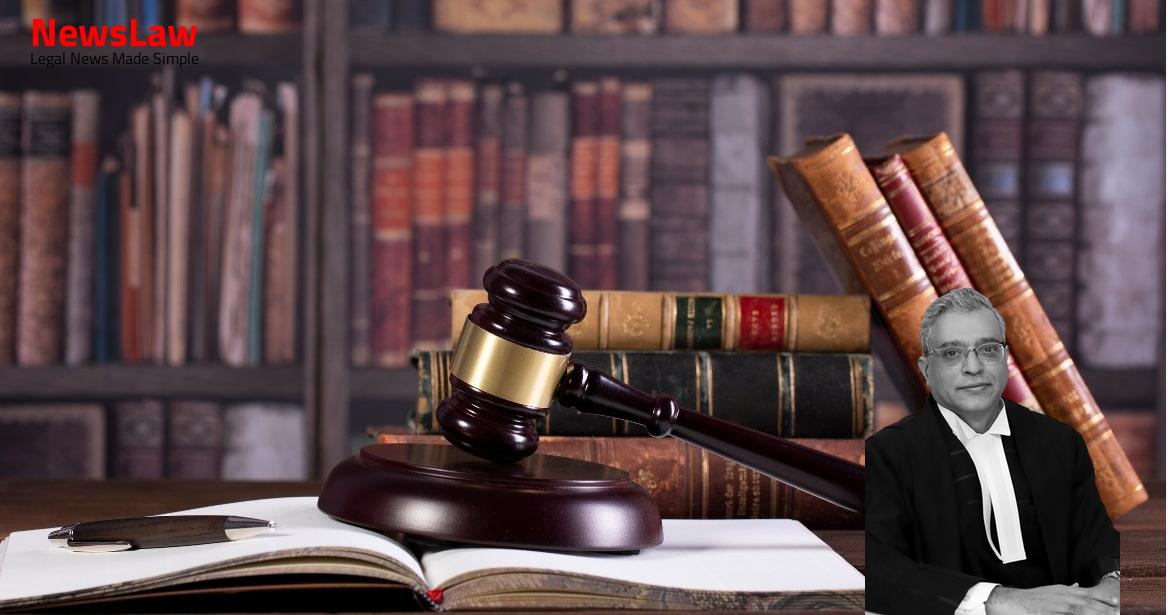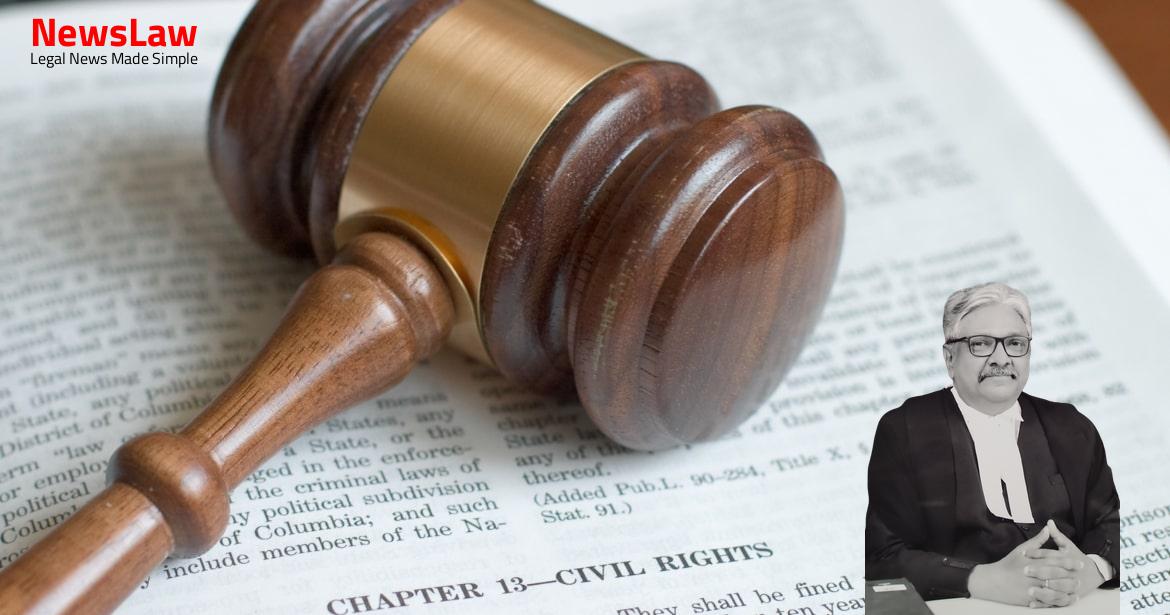Delve into the intricacies of a recent legal case where the court’s analysis of bail decisions in a serious criminal offense came under scrutiny. The examination of factors such as the nature of the crime, evidence, and judicial discretion provides valuable insights into the complexities of the legal system.
Facts
- The Appellant/Informant Deepak Yadav lodged an FIR on 09.01.2021 at PS Para, Lucknow under Section 307 IPC against Respondent No 2/Accused Harjeet Yadav and others.
- The accused persons allegedly fired at the deceased, Mr. Virendera Yadav, with the intention to kill him on the night of 08.01.2021.
- Mr. Virendera Yadav was seriously injured as a result of the shooting and was admitted to the Trauma Centre, Medical College, Lucknow.
- Co-accused Sushil Kumar Yadav surrendered before the Judicial Magistrate, Lucknow on 16.01.2021.
- Charge sheet was filed against Respondent No.2/Accused and co-accused Sushil Kumar Yadav under Sections 302 and 34 IPC after completion of investigation.
- The court granted bail to Respondent No.2/Accused on certain conditions after considering the nature of the offence, evidence, and Article 21 of the Constitution of India.
- The deceased, Mr. Virendera Yadav, named Respondent No.2/Accused as one of the shooters before passing away on 14.01.2021.
Also Read: Assessment of Loss of Earning Capacity in Motor Accident Claim
Arguments
- The arrest of the Respondent No.2/Accused was made based on a statement of the deceased made to his wife in the presence of the Investigating Officer (IO).
- The Appellant’s counsel argued that the High Court granted bail to the known criminal, the Respondent No.2/Accused, in a casual manner solely on the grounds of parity without considering the accused’s role in the crime.
- It was argued that the High Court’s decision to grant bail on the first day of listing without giving an opportunity for the Appellant/Informant or the State to respond was erroneous.
- The State was not provided with the chance to file a counter or present the current status of the case before bail was granted.
- The Respondent No.2/Accused, who allegedly fired at the deceased according to the FIR, should not have been granted bail for committing such a serious crime.
- The Respondent No.2/Accused is a young student with no criminal antecedents, pursuing a D.Pharma course from Himalayan Garhwal University.
- The case against the Respondent under the Arms Act is based on an erroneous recovery in the instant case.
- No specific role has been attributed to the Respondent No.2/Accused by the deceased, who only mentioned that Ratilal’s younger son shot him.
- Granting bail on the first day of the hearing does not violate any legal concept, statutory requirement, or precedent.
- The High Court, in granting bail, considered relevant factors such as the nature of the charge, gravity of the offense, evidence, and criminal history of the accused.
- References were made to the cases of Babu Singh & Ors. Vs. State of U.P. and Dataram Singh Vs. State of Uttar Pradesh and Another.
Also Read: Enhancement of Compensation in Workmen’s Compensation Act Case
Analysis
- Applicant shall not tamper with prosecution evidence or intimidate witnesses
- Applicant must cooperate in the trial without seeking adjournment
- Applicant shall not commit any criminal activities after being released on bail
- Applicant must not influence or threaten individuals acquainted with the case facts
- Undertaking required to not seek adjournment during trial dates
- Applicant must be present for specified court dates without fail
- Order copy to be filed from official website of High Court Allahabad
- Verification of order copy authenticity required from official website
- Breach of any conditions may lead to bail cancellation
- The Court has inherent powers to cancel bail of an accused even without supervening circumstances.
- Observations made during bail adjudication are not binding on trial outcomes.
- High Court failed to consider crucial factors in granting bail to the accused.
- Accused was named in the FIR as the main assailant with a weapon, intending to murder the deceased due to previous enmity.
- High Court granted bail to the accused without considering relevant facts and serious charges against him.
- Cancellation of bail can extend beyond supervening circumstances and should be justified.
- Cancellation of bail can be warranted if granted on untenable grounds or with serious discrepancies.
- Factors like accused’s admission of the offense and criminal history were ignored in the grant of bail.
- Granting bail must consider the nature of the offense, severity of punishment, and involvement of the accused.
- High Court must provide reasons for granting or refusing bail and should exercise discretion judiciously.
- The Court must assess if there are reasonable grounds to believe in the accusation and prosecution’s ability to produce evidence.
- Grant of bail is a matter governed by key considerations including the nature of the crime, implications on the accused’s liberty, state’s interest, and proper administration of criminal justice.
- Judicial discretion in granting bail is not unstructured and should be exercised based on well-settled principles, considering various factors such as the nature and gravity of the accusation, danger of accused absconding, character of the accused, and potential influence on witnesses.
- The court granting bail must apply a judicial mind, record reasons for the decision, and ensure that the order is supported by cogent reasoning.
- The High Courts or Sessions Courts must record detailed reasons for granting or denying bail, ensuring transparency and accountability in the exercise of judicial discretion.
- A bail order devoid of proper reasons may be subject to judicial scrutiny and potential cancellation if it lacks a logical basis.
- The seriousness of the crime, supporting evidence, apprehension of witness tampering, and public interest are crucial factors to be considered while deciding on bail applications.
- Cancellation of bail should only be considered in exceptional circumstances, such as interference with the administration of justice, evasion of justice, abuse of concession, absconding, misuse of bail, or tampering with evidence or witnesses.
- Grant of bail to the Respondent No.2/Accused based solely on parity is criticized for lack of proper consideration and application of mind.
- High Court failed to consider factors like criminal history, nature of crime, material evidence, and recovery of weapon in the possession of Respondent No.2/Accused.
- Judgment states that the High Court order is unsustainable and lacks merit.
- The High Court’s order is set aside, and the bail bonds of Respondent No.2/Accused are cancelled.
- Respondent No.2/Accused is directed to surrender within one week from the date of this order.
Also Read: Determining Compensation in Motor Accident Claim Cases: Legal Analysis
Decision
- Applicant allowed to be released on bail on furnishing personal bond and two sureties to satisfaction of the court
- Sureties to be verified before issuing release order
- If sureties not verified, police authorities to take applicant into custody
- Applicant’s release shall not affect final adjudication before trial court
- Applicant can apply for bail again later with new circumstances
- Appeal allowed
- Trial court to consider matter uninfluenced by any observations made in the judgement
- Trial court to consider evidence brought on record
Case Title: DEEPAK YADAV Vs. THE STATE OF UTTAR PRADESH (2022 INSC 610)
Case Number: Crl.A. No.-000861-000861 / 2022



